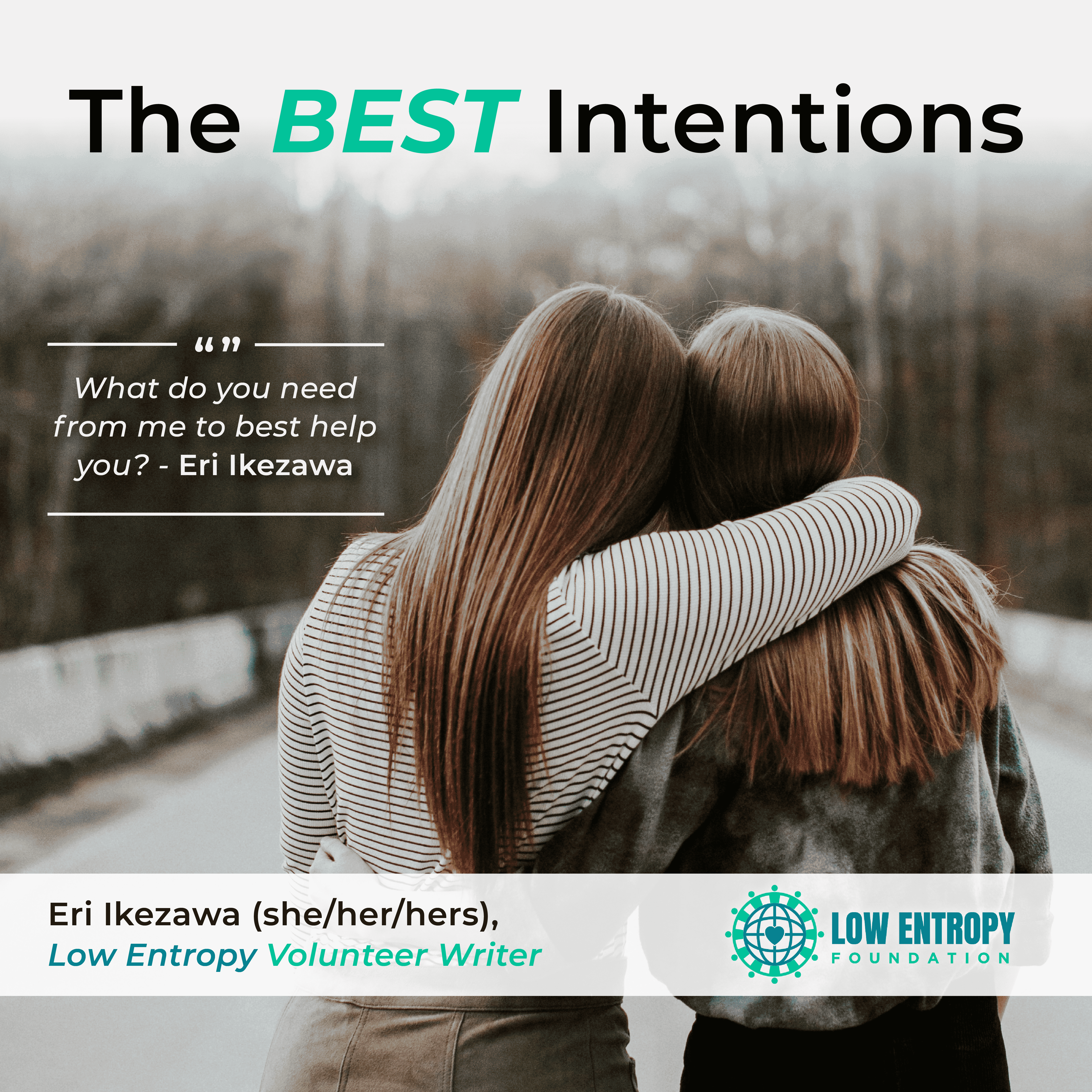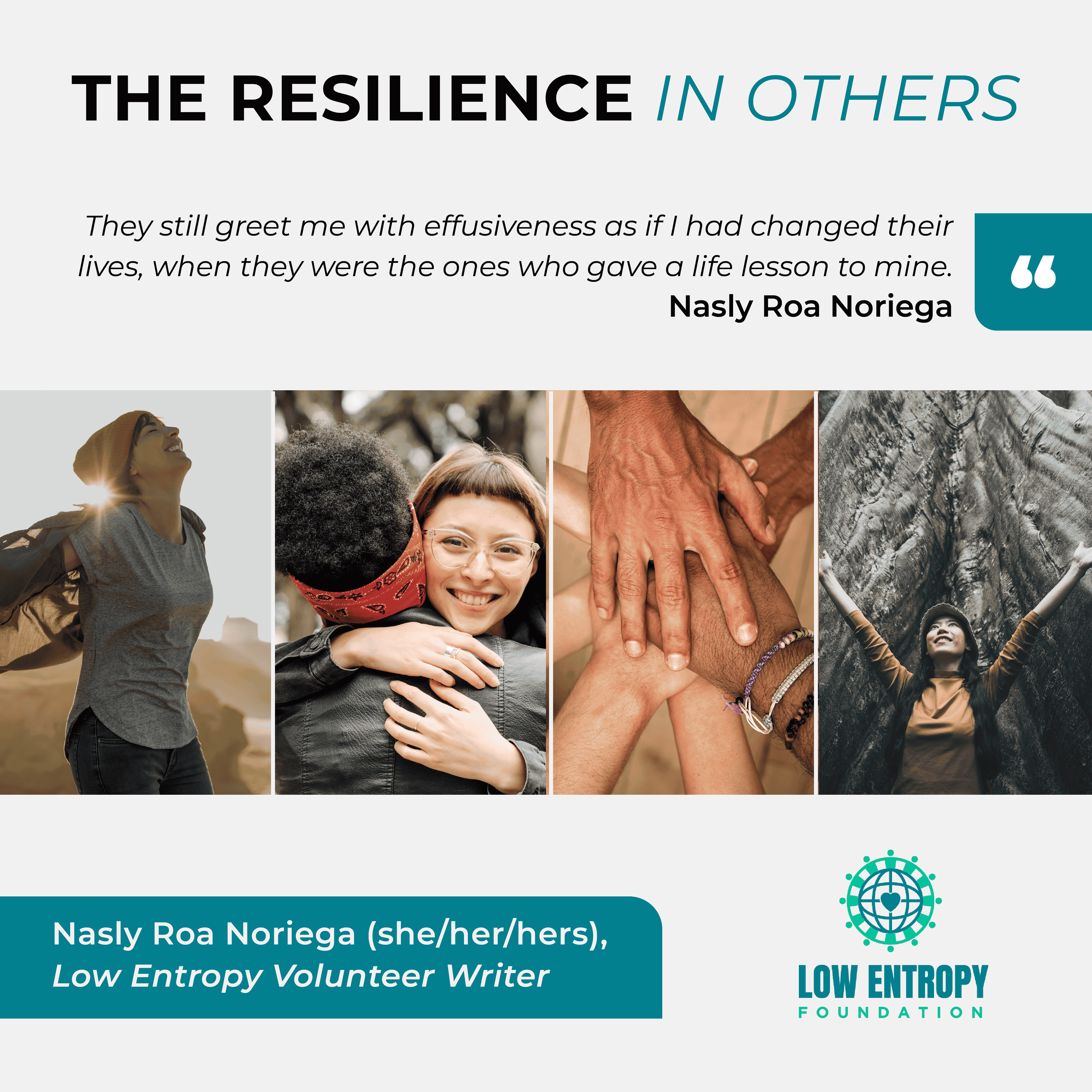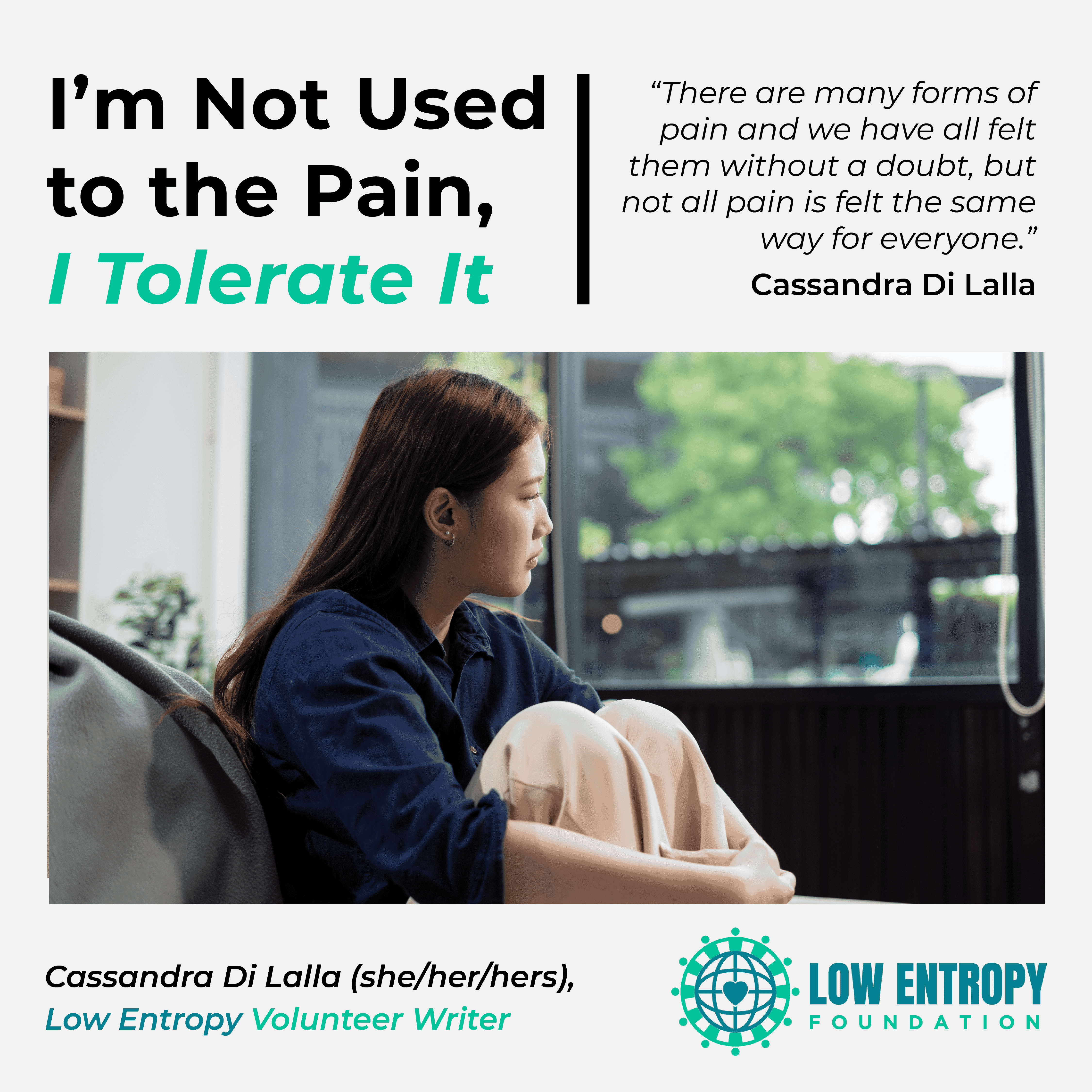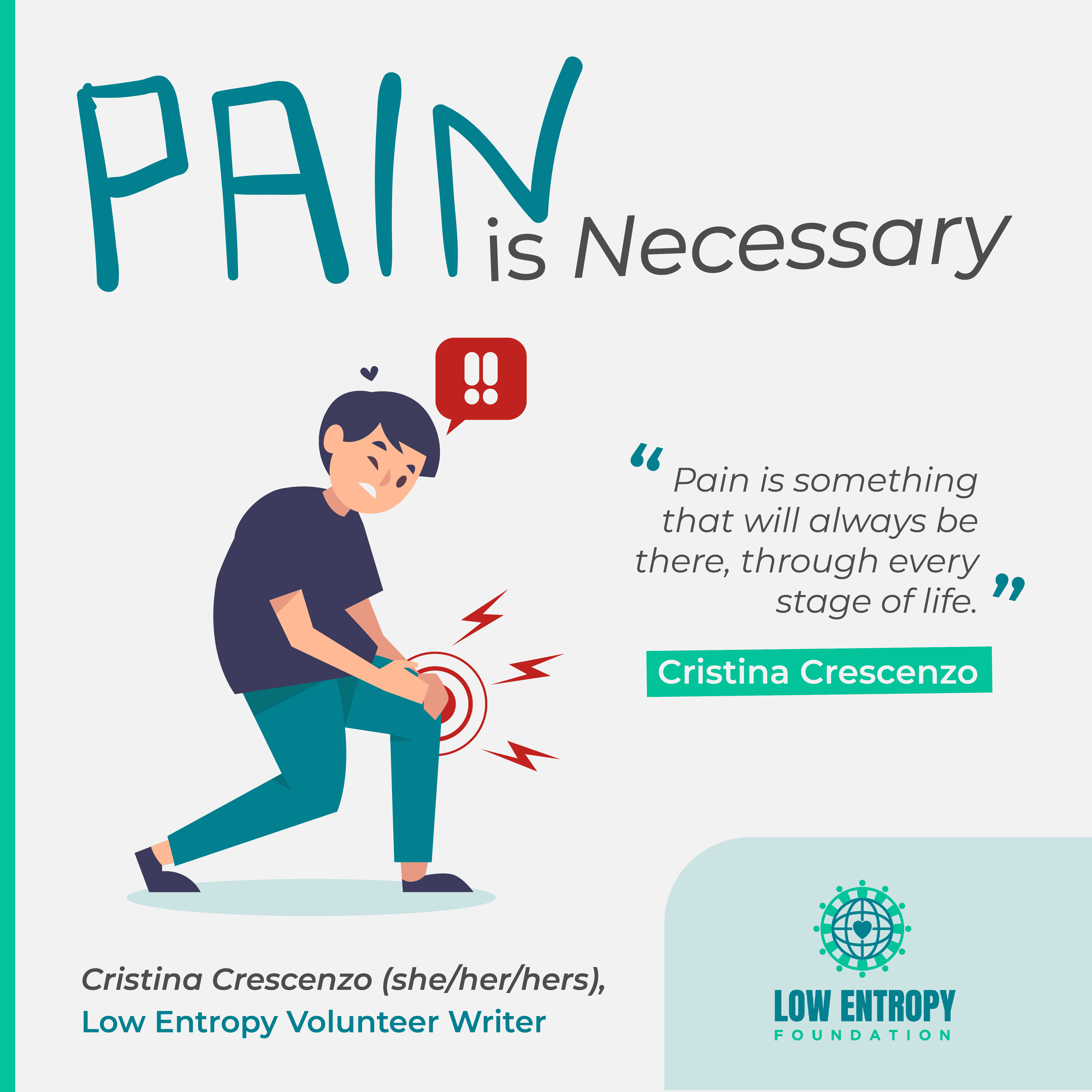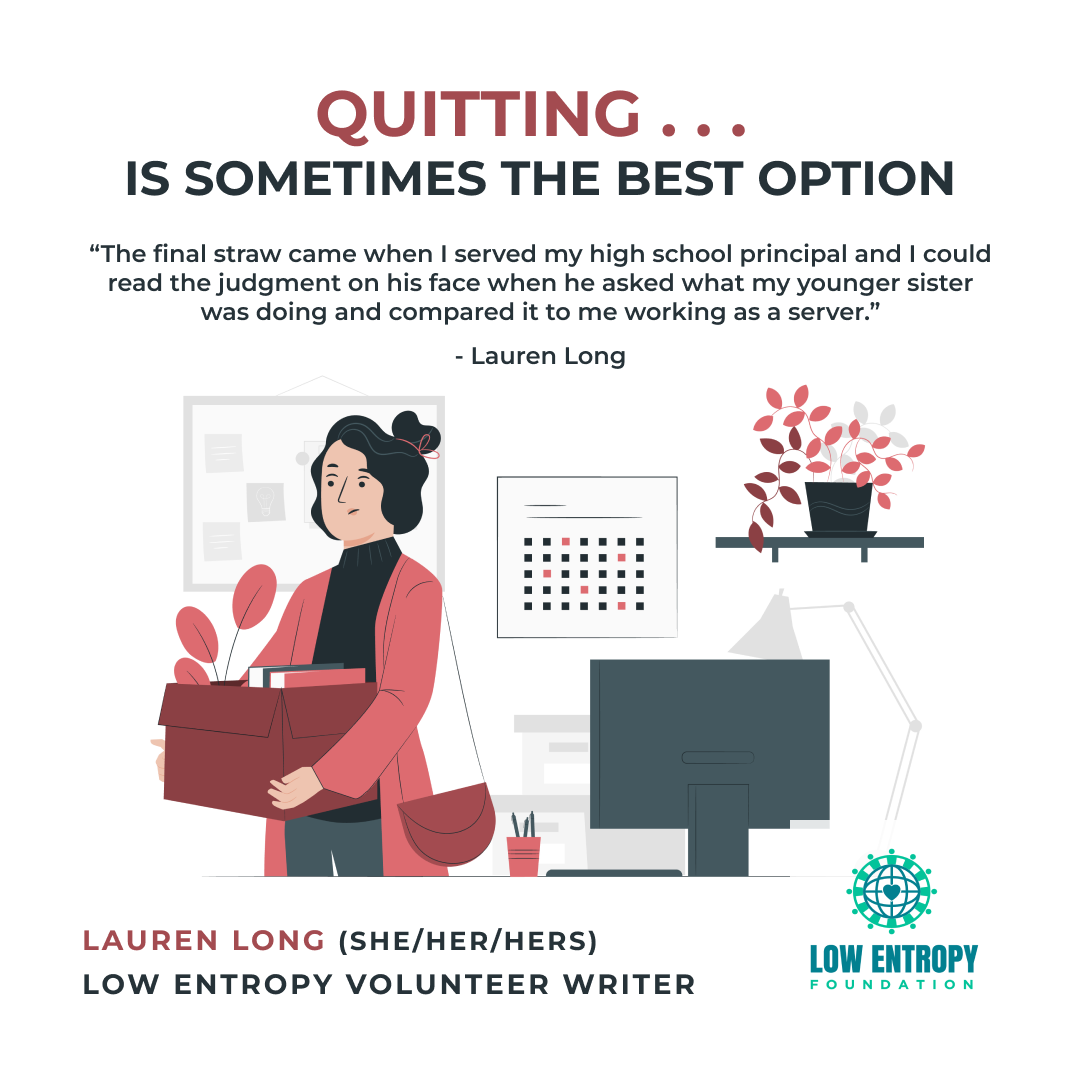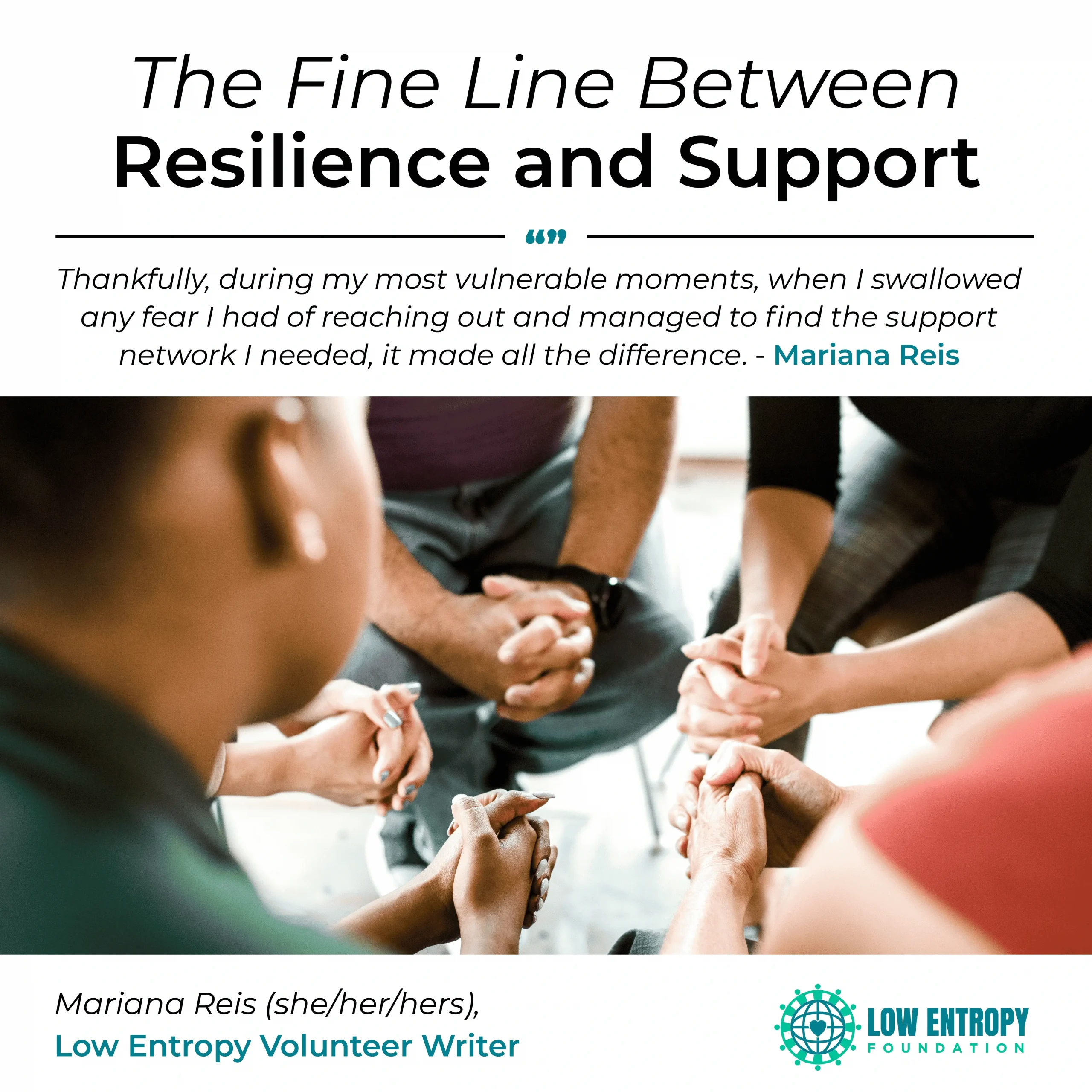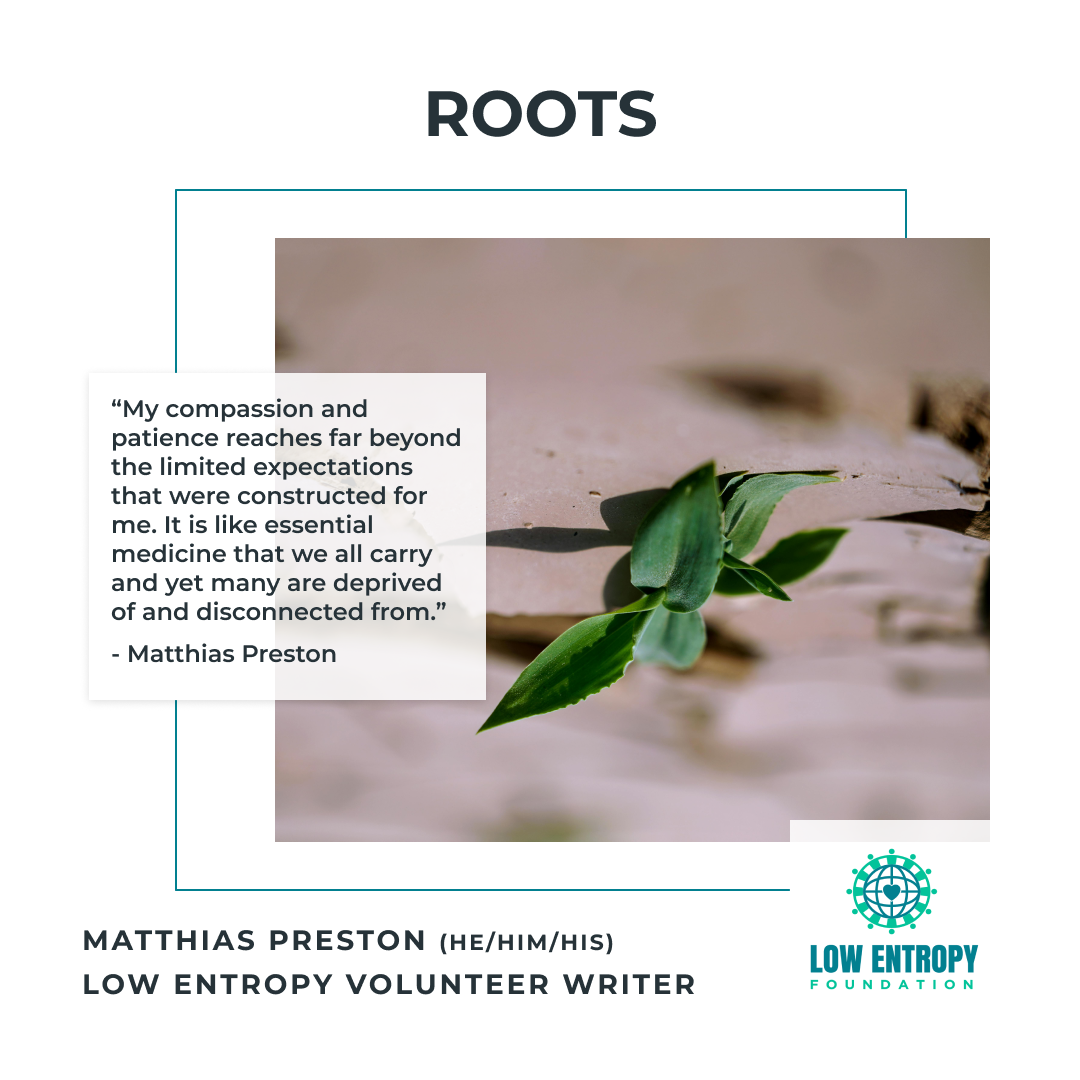Eri Ikezawa (she/her/hers), Low Entropy Volunteer Writer
As social creatures, however introverted or extroverted we may be, we unequivocally need human interaction in order to survive.
Whether it’s basic transactions through our professional environments or the deep personal conversations we have with our closest loved ones about our innermost dreams, this cardinal tenet of human life is woven into our daily lives. Among the many various ways we merge with the other members of society, I think one of the profound ways we connect with people is through sharing our most vulnerable moments.
Due to the nature of revealing our underbellies, often evidenced by the tremble in our voices as we expose our Achilles’ heels, there needs to be a fundamental level of trust interlinking people to facilitate that sort of interaction. With that in mind, from my own personal experience, I feel deeply humbled and honored when people choose me as someone to seek comfort from.
In those moments, I acknowledge the importance of their faith in me to be able to provide a nurturing environment, and so I try my best to curate a safe space, a place where they can speak, free of judgment.
This being said, without trying to sound insular or narrow-minded, I try to comfort others the way I’d like people to approach me during my times of emotional need. I think most important is to provide an objective, but empathetic ear, neutralizing the impulse to criticize people for making mistakes (or choices that perhaps do not personally appeal to me); oftentimes, I sense that people are looking for someone to hear them out—to offer sentiments of genuine consolations for the strife in their life without being too heavy-handed with unsolicited advice or opinions.
If I am uncertain about how best to provide comfort one is seeking, I truly believe asking upfront how to try and cater to someone’s needs while they are down is the most optimal solution.
“Did you want any advice or solutions?”
“Do you want me to just listen?”
“What do you need from me to best help you?”
But if I took a stab in the dark, led completely by instinct, I would try my best to convey compassion for their circumstances first, and then acknowledge that what they are feeling is valid and real. I might bring up anecdotes of my own to align myself in a situation similar to theirs before looping back around to their situation to ensure they don’t feel as though I am trying to undermine their own current experience (I stress that I think it’s important to articulate the importance of emphasizing that I brought up the story to relate to the other person—otherwise I worry it can occasionally land a bit awkwardly with my intentions being misconstrued as trying to bring the attention to myself).
I also try my best to keep in mind that sometimes people aren’t always looking for brutal honesty or a reality check. I try to assess at what stage people are approaching me or confiding in me, and make a judgment call from there.
For example, if I sense someone is at an emotional peak where uninvited candidness will only isolate the person further, I try to focus more on their immediate need, tending to the injury and ensuring it doesn’t become more inflamed. Other times, if I suspect that the person seems calm enough to handle a healthy dose of honesty and potential solutions in addition to any sympathy or support I offer, I will carefully attempt to dole out some advice, too. However, in this latter situation, I often ask for permission as I never intend to add salt into an already open wound.
At the end of the day, I recognize that I can only meet people where they are ready to be met—if they have not introspected enough to recognize what I do or are unwilling to face their demons yet, as much as I’d like to force their hand (for their own benefit) I realize it is not possible, nor something I’d desire.
No one can compulsorily have people behave in the ways they’d like them to; we must respect that each and every person is on their own individual voyage, boats decorated to their personal whims as the sails whip through oceans and winds of their own selection, until they reach their destination.
We are all shaped by the lessons and mistakes we make, and even if we inherently know better than our loved ones do in that singular moment, we must trust that they will see what we see at some point (and also succumb to the reality that sometimes, people’s paths diverge when you no longer subscribe to the same values and goals as that person.)
But this is simply the way that I, personally, am most comfortable offering solace.
Here, I would like to interlude with the notion that, as long as we are trying our best to be there for the people whom we love, then that effort alone trumps all else. Some people may not be confident doling out advice or using their words, so they may demonstrate their support through actions instead. Or perhaps some people are more solution-oriented rather than emotion-based, so these friends or family may focus more on how they can guide you out of an unideal situation.
I think that the only way that one’s comfort can be considered objectionable is if they are not invested in your healing or well-being whatsoever. Even at times where people are not giving me the exact brand of comfort I may be seeking, I still appreciate that they are bolstering me towards a future where I am not bogged down by my struggles. I realize that, as long as people are caring for me in the ways that they know how, I can always articulate what I need from them or prompt them for counsel—and in those moments, I feel truly connected.
And human.
—
My name is Eri Ikezawa and I have an extended minor in psychology and a major in linguistics. I’m still on the path to quelling questions about myself and the direction I want to head in, but in the meantime, I have always wanted to find a way to help others and contribute to a community dedicated to personal development and self-love.







